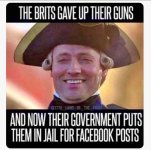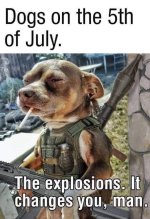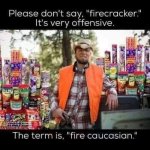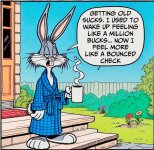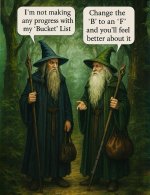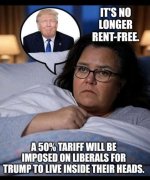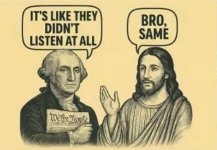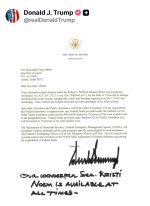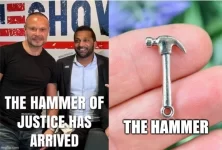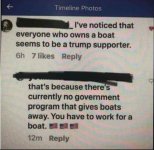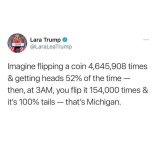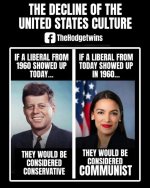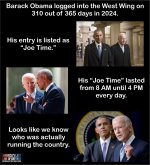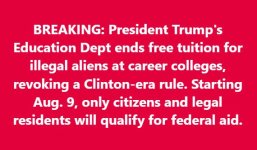-
Please be sure to read the rules and adhere to them. Some banned members have complained that they are not spammers. But they spammed us. Some even tried to redirect our members to other forums. Duh. Be smart. Read the rules and adhere to them and we will all get along just fine. Cheers. :beer: Link to the rules: https://www.forumsforums.com/threads/forum-rules-info.2974/
You are using an out of date browser. It may not display this or other websites correctly.
You should upgrade or use an alternative browser.
You should upgrade or use an alternative browser.
Toons For The Times II
- Thread starter pirate_girl
- Start date
They need to change the name of the cracker aisle in Walmart to "caucasian aisle".
The British never had gun rights. Jus' sayin'
What are Britain’s gun laws?The British never had gun rights. Jus' sayin'
For a long time, they were somewhere between minimal and nonexistent.
Way back when William and Mary crossed the channel in small boats, the price they paid to become Britain’s joint monarchs was accepting the 1689 Bill of Rights, which acknowledged that Parliament was the source of their power. It also guaranteed the right to bear arms–unless of course you were Catholic, who were the boogeymen of the moment. You were also excluded if you were some other (and barely imaginable) form of non-Protestant.
The relevant section says, “The subjects which are Protestants may have arms for their defence suitable to their conditions, and as allowed by law.”
That leaves some wiggle room: “suitable to their conditions”; “as allowed by law.” (The US second amendment is ambiguous as well. Maybe it’s something about weaponry.) So when in 1870 a new law required a license to carry a gun outside your home, it wasn’t a violation of W and M’s agreement, because this was a law. As far as I can tell from the wording, if all you wanted to do with your gun was set it on the kitchen table and gloat over it, you could skip the license.
In 1903, a new law required a license for any gun with a barrel shorter than 9 inches and banned ownership by anyone who was “drunken or insane.”
You could have a lot of fun poking holes in that. Could I get a license if I was sober all week but on the weekend I routinely got so drunk I fell in the horse trough? If I had a title and expensive clothes, would I still be considered a drunk (or a nut)?
Never mind. That was the law they passed. Nobody asks me to consult. It’s a mystery.
But let’s go back a couple of years, to 1901, as Historic UK does in its post on gun laws. Handguns were being widely advertised to cyclists, with no mention of licenses, although the ;need for them may have been so obvious to everyone involved that they didn’t need mentioning. Or enforcement may have been patchy.
Bikes were the hot new thing–the AI of the day–and everyone who had any claim to with-it-ness was rushing around on one. And maybe the cyclists felt vulnerable, out there in the countryside on their own, or maybe gun manufacturers saw an opportunity and manufactured a bit of fear to boost sales. To read the ads, every cyclist needed a handgun. They were advertised, variously, as the cyclist’s friend and the traveler’s friend. One ad said, “Fear no tramp.”
Before World War I (it started in 1914; you’re welcome), Britain had a quarter of a million licensed firearms and no way to count the unlicensed ones. Then the war turned Britain, along with a good part of the rest of the world, on its ear. One of its smaller side effects was that when it ended soldiers came home with pistols.
How’d they manage that? The army didn’t want them back? I consulted Lord Google on the subject, but I seem to have asked the wrong questions, because he went into a sulk and refused to tell me anything even vaguely relevant. But bring guns home they did, in large enough numbers that the government started losing sleep over it, because this was a turbulent time and the government had a lot of things to lose sleep over. For one thing, the Russian Revolution not only meant it had to share a planet with a revolutionary socialist government, it also kicked off a wave of revolutions in Europe that must’ve made it look, for a while, as if Britain would end up sharing the planet with multiple socialist governments.
Life was turbulent on British soil as well. Not all that long before the war, in 1911, a shootout in Londoninvolved two Latvian anarchists, a combination of the Metropolitan and City police departments, the Scots Guards, and Winston Churchill. The anarchists might not have been anarchists, though, but expropriators, carrying out robberies to support the Bolshevik movement. Either way, they were well armed and the police were armed only with some antique weapons they pulled together. Until the Scots Guards showed up, they were outgunned.
In “Forging a Peaceable Kingdom: War, Violence, and Fear of Brutalization in Post–First World War Britain,” Jon Lawrence argues that postwar Britain lived with a fear of violence from returned soldiers, the general public, and/or a government “brutalized” by the war. (The quotation marks are his. I’ll hand them back now that we’re ready to move on.)
The press was full of violent crime reports. When isn’t it, and when don’t we at least partially believe it’s a balanced picture of the world we live in? Still, the stories are part of the picture: fear was the air people breathed.
The soldiers returning from the war are also part of the picture: they came home to unemployment and its cousin, low pay. A wave of strikes swept the country, including a police strike and in 1919 a strike by soldiers–or if you want to put that another way, a mutiny. Some of that was violent and some wasn’t. All of it kept the government up at night.
Gun rights and gun laws are not the same thing. In fact, gun laws are the antithesis of the right to bear arms.
Agreed. But nonexistent gun laws = right to carry guns. So the brits had it at that point.Gun rights and gun laws are not the same thing. In fact, gun laws are the antithesis of the right to bear arms.
What are Britain’s gun laws?
For a long time, they were somewhere between minimal and nonexistent.
Anyone paying attention knew who was running the country.
Call me surprised!!!!
I doubt biden was in the white house 310 days .Anyone paying attention knew who was running the country.
Call me surprised!!!!
If he was he didnt know it.I doubt biden was in the white house 310 days .
Complete fucking jackass.





